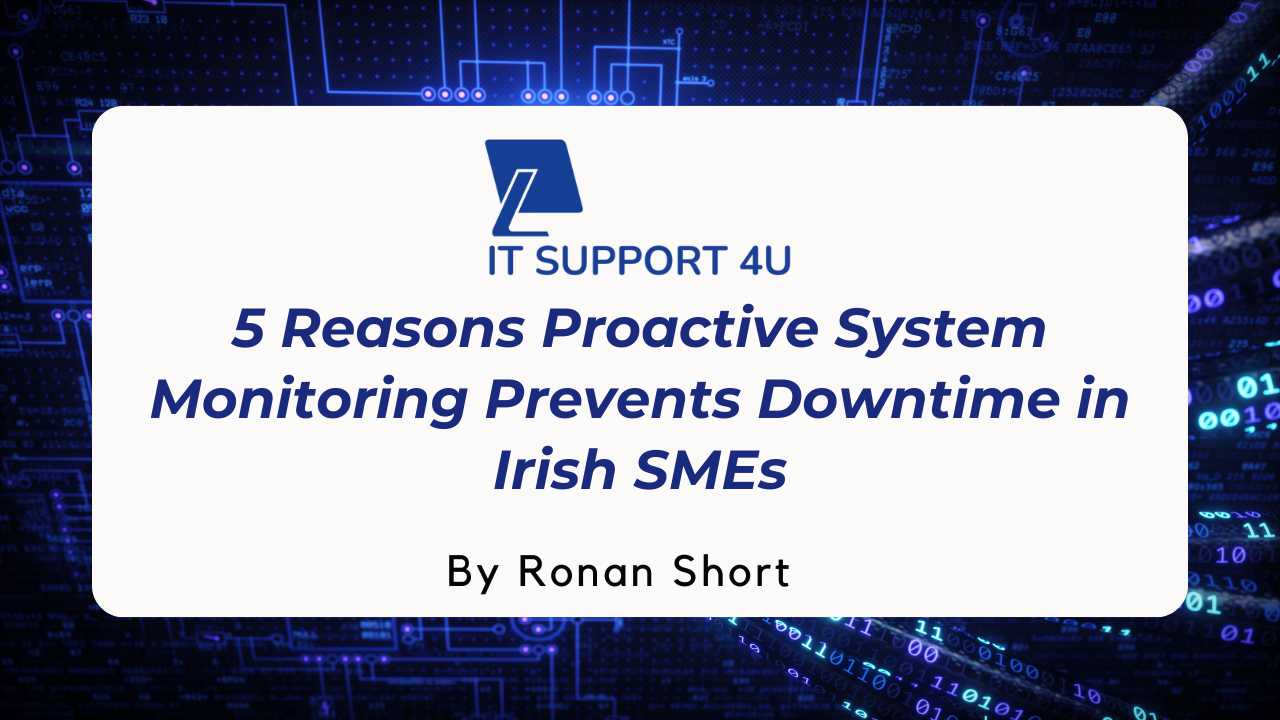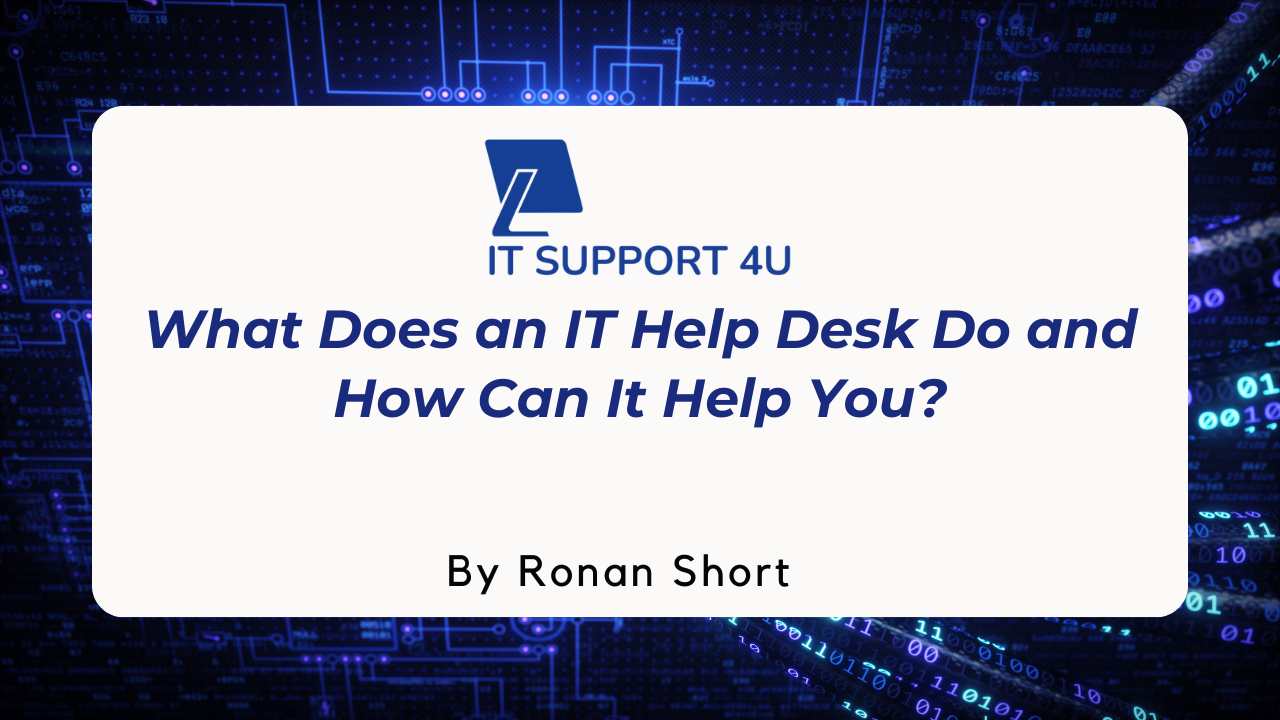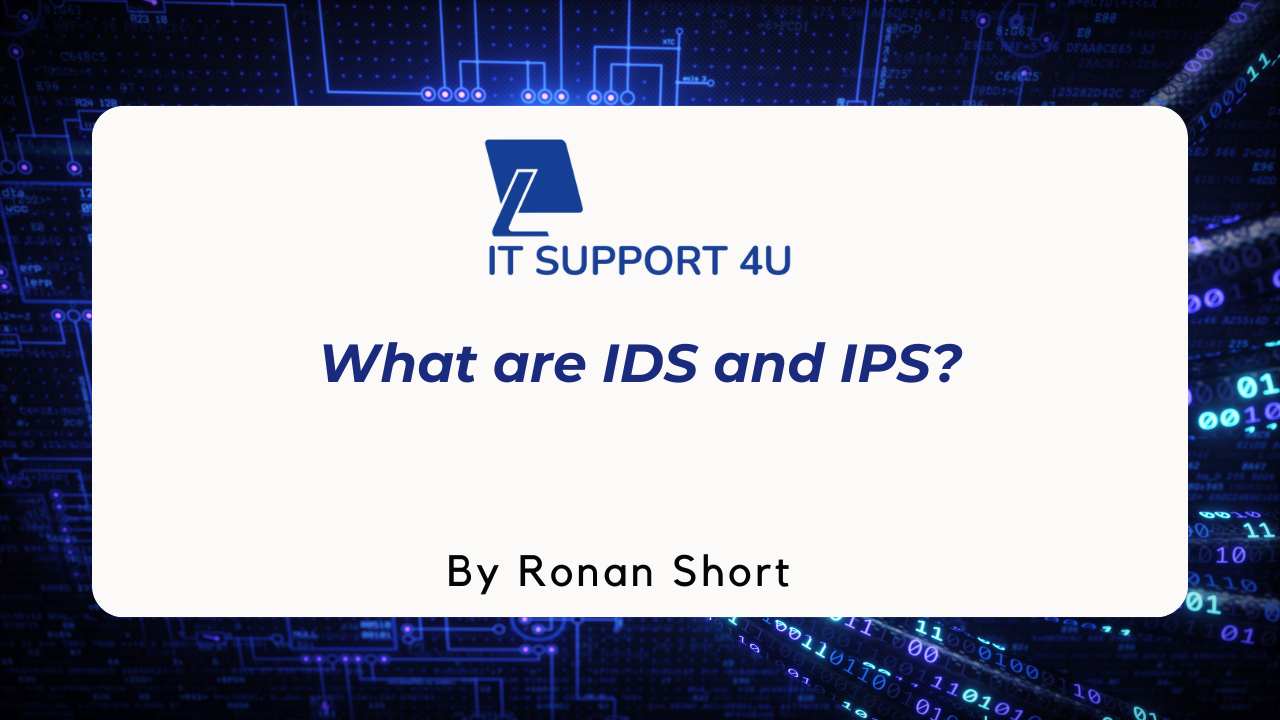Are unexpected IT issues slowing down your business operations? For many small and medium-sized enterprises in Ireland, system downtime can be costly and disruptive.
That’s why a shift from reactive fixes to proactive system monitoring is more important than ever.
In this blog, we explore the 5 reasons proactive system monitoring prevents downtime in Irish SMEs and how it helps keep your business running smoothly. From saving money to improving security, the benefits are too valuable to ignore.
Let’s start!
Why Irish SMEs Must Prioritise Proactive Monitoring?
Relying on reactive IT support often means dealing with problems after they’ve already caused disruption. Proactive system monitoring changes that. It’s a smarter, forward-thinking strategy that spots issues like performance dips or security risks before they spiral out of control.
By keeping a close watch on your systems at all times, your business can reduce downtime, avoid costly delays, and stay ahead of potential threats.
What Are The Key Elements That Make Proactive Monitoring Essential?
By using the right tools and strategies, businesses can spot and fix problems before they grow. These 5 reasons proactive system monitoring prevents downtime in Irish SMEs clearly show how small issues can be handled early to avoid major disruptions.
1. Performance Monitoring
Keeping track of CPU usage, memory levels, and disk space helps identify strain on systems. Regular monitoring ensures smoother software performance and faster response times. This lets businesses act before systems slow down or crash. It plays a vital role in maintaining daily operations without interruption.
2. Network Monitoring

Network monitoring looks at traffic levels, latency, and connectivity between devices. It helps IT teams spot slowdowns or unusual traffic patterns. With early warnings, they can fix issues before customers or staff experience problems. This keeps everything connected and running smoothly.
3. Security Monitoring
This involves keeping an eye on strange activity like failed logins or unfamiliar access attempts. It helps detect threats such as malware or hacking early on. Businesses can protect sensitive data and prevent costly breaches. It also supports stronger overall cybersecurity practices.
4. Log Monitoring and Analysis
System logs hold useful information about software errors, logins, and system changes. Studying this data helps identify repeating issues or warning signs. IT staff can act before these signs turn into real faults. It’s a key step in predicting and preventing failures.
5. Automated Alerts and Notifications
These alerts tell IT teams instantly when something needs attention. There’s no need to constantly check systems manually. Quick notifications mean quicker responses and less downtime. It's a simple but powerful part of proactive monitoring.
Why Proactive Monitoring Makes Business Sense?
Keeping your systems healthy isn’t just an IT task, it’s key to running your business efficiently. These benefits clearly support the 5 reasons proactive system monitoring prevents downtime in Irish SMEs, showing how it helps reduce risk and boost performance.
1. Reduced Downtime and Faster Issue Resolution
By constantly tracking system activity, IT teams can react to issues the moment they appear. This means less disruption and quicker recovery. Fixing problems early keeps essential services up and running without delay.
2. Cost Savings
Emergency repairs and system failures can be expensive. Proactive monitoring helps detect issues before they escalate, lowering the need for costly fixes. It also helps extend the lifespan of IT equipment, saving money long term.
3. Improved System Performance and User Experience
When systems slow down, it affects how your team works and how customers experience your services. Monitoring helps spot lags or overloads early. That way, you can keep everything running smoothly and reliably.
4. Increased Security

Strange activity like repeated failed logins or network spikes can point to a cyber threat. Proactive monitoring picks up on these signs fast. This lets businesses take action before any harm is done to sensitive data.
5. Better Insights for Strategic IT Planning
Monitoring isn’t just about fixing problems, it also helps with long-term planning. By analysing trends and usage, IT teams can make smarter decisions. Whether it’s scaling up servers or upgrading tools, planning becomes clearer and more informed.
Conclusion
The 5 reasons proactive system monitoring prevents downtime in Irish SMEs highlight why it’s crucial to stay ahead of IT issues. From improved performance and stronger security to cost savings and better planning, proactive monitoring ensures your systems work without disruption. It helps businesses respond faster, avoid expensive repairs, and deliver a better user experience. Rather than waiting for problems to occur, smart SMEs are now choosing to prevent them altogether.
Ready to protect your business from costly downtime? Get in touch with our IT Support team today and discover how proactive monitoring can keep your systems running smoothly.
Get an IT Plan Today!













